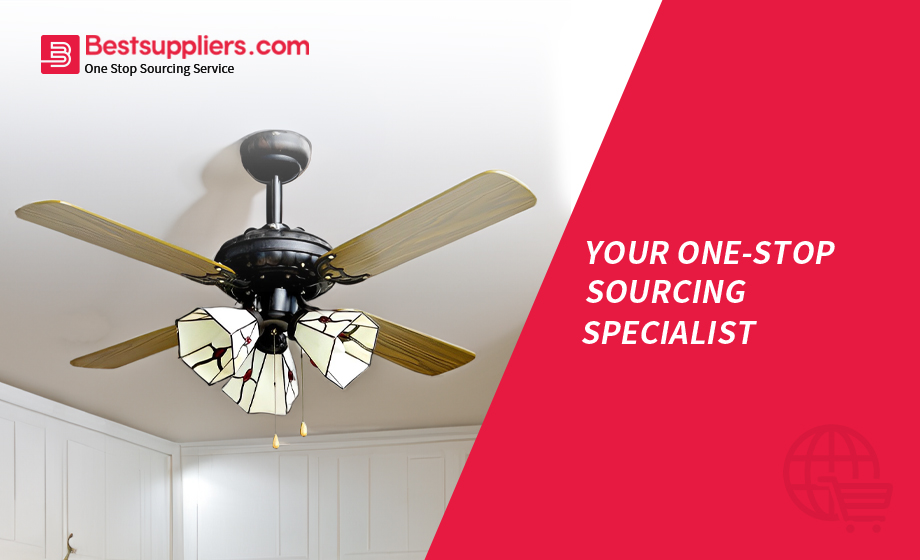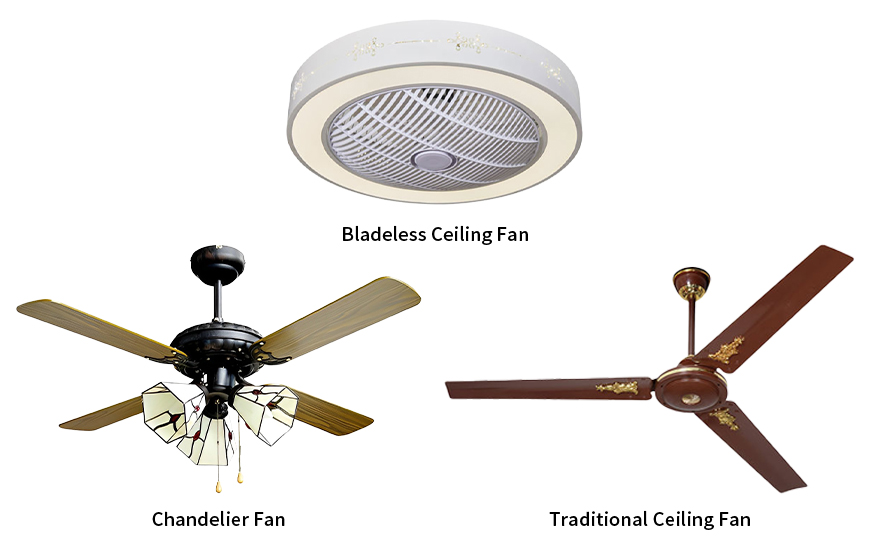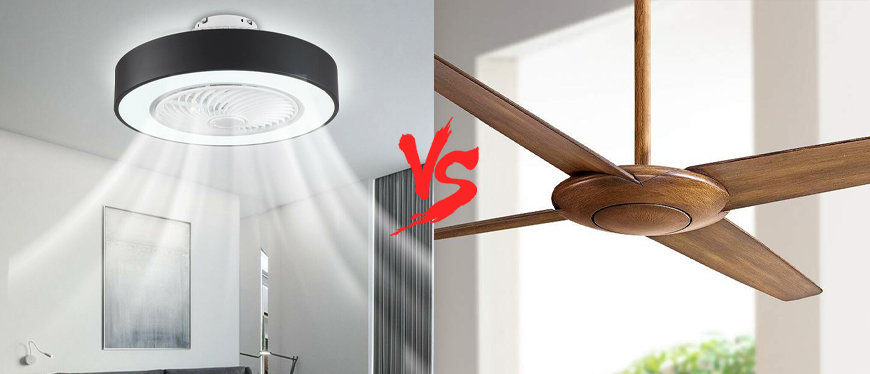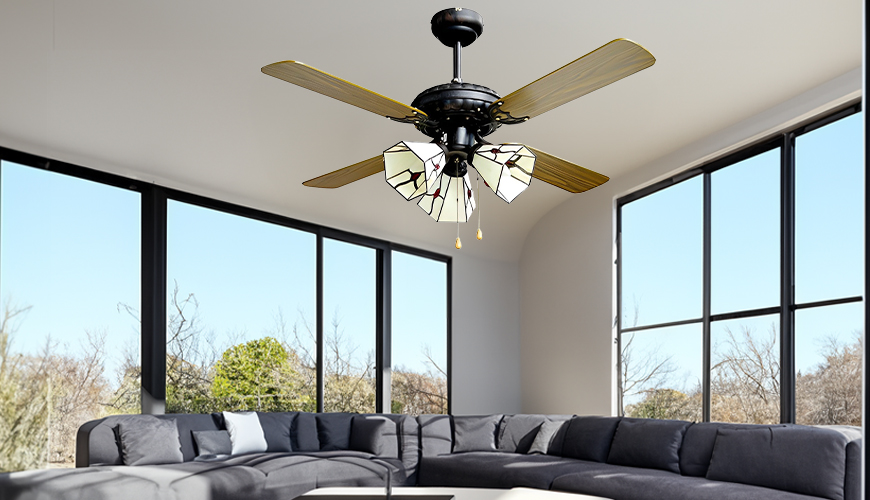Ceiling Fan Choose Guide - What You Must Pay Attention To?

Introduction: What Is a Ceiling Fan?
Ceiling fans are one of the most common appliances needed in almost every home and office. As the name suggests, ceiling fans hang down from the ceiling of a room to circulate air throughout the room. You can install from flat ceilings, pitched ceilings, high ceilings, recessed mounts, and more.
Ceiling fans are relatively inexpensive devices that are very easy to install and operate.
What Types of Ceiling Fans?
1. Traditional Ceiling Fans:
Traditional ceiling fans are ordinary ceiling fans. They have three, four, or five blades, can be noisy, and use rotating blades mounted on a hub to circulate the air.
2. Chandelier Fans:
Many ceiling fan installations also double as lamps, eliminating the need for a separate overhead light in the room. We call them ceiling fans with lights.
If you're not sure whether to install an ambient light fixture or a ceiling fan in the central area of your home, now you can have both. With our ceiling fans with lights, you can create a comfortable atmosphere of cool breezes and plenty of lighting throughout your home.
3. Bladeless Ceiling Fans:
The leafless ceiling fan lamp is an electric fan that can both illuminate and cool down and can be installed in the living room or bedroom. He has no blades and has great security. Since there are no exposed blades directly acting on the air, there is no whirring sound of ordinary ceiling fans, and it has a better mute effect.

What Is the Difference Between a Traditional Ceiling Fan and a Bladeless Ceiling Fan?
| Traditional Ceiling Fan: | Bladeless Ceiling Fan: |
| Fixed on the ceiling with expansion screws, easy to shake and fall off. | No fan blades, no shaking, no falling off. |
| The floor is low, easy to touch, and easy to hurt people. | The wind circle does not move, does not hurt people, and is safe. |
| Rotating fan blades are easy to break and hurt people. | No blades, no rotation, no harm. |
| Just cool down, and circulate the air. | It also has a decorative function. |

Benefits of ceiling fans:
1. Flexibility:
It helps to avoid the imbalance between the hot air and cold air in the room. This means that it offers an optimal balance of warm and cold air to give you the utmost comfort.
Warm air accumulates on the ceiling in winter, and by switching the ceiling fan to reverse mode, the warm air can be evenly and softly distributed into the room. This means that the heating can be switched off earlier, saving electricity.
2. Power saving and energy saving:
Compared with air conditioners, ceiling fans can be said to consume very little electricity. The use of ceiling fans can actually fully achieve the effect of cooling and driving heat, and it will not make the difference between indoor and outdoor temperatures too large, so it is not easy to catch a cold.
3. Aesthetics:
Various styles, from simple to gorgeous, Chinese style, American style, European style, to meet the decoration needs of different customers.
Comparison of Three Blades and Four Blades Ceiling Fans:
| Three Blades: | Ceiling Fans: | |
| Air Delivery | Low | High |
| Aerodynamic Resistance | Low | High |
| Wind Speed | High | Low |
| Price | Low | High |
| Weight | Light | Heavy |
| Power Consumption | Low | High |
| Noise | High | Low |
The role of the ceiling fan blade is not limited to the beauty of the electric fan, it also affects the wind speed of the ceiling fan and so on. According to the table above, it can be seen that the three-blade ceiling fan has a faster wind speed and is usually suitable for countries with hotter weather, such as India, where they have a greater demand for high-speed fans. And for colder countries, where fans are not required to run at higher speeds, a four-blade ceiling fan is ideal.

How to Choose the Right Ceiling Fan?
1. Room Size:
The size of your room will affect the size of the ceiling fan you choose. Larger rooms have more airflow than smaller rooms, so larger fans are needed. Making sure you choose the right size fan for your room is important to make sure it works efficiently.
2. Ceiling Height:
Typically, a ceiling fan works best when it is 8 to 9 feet from the ground. To ensure that your fan is positioned at the right level, you will need to consider how the fan mounts to the ceiling. For low ceilings, flush-mount fans are available. These hug close to the ceiling, keeping the fan from hanging too low. Standard-mount ceiling fans are ideal for medium-height ceilings. These have a download that slightly lowers the fan from the ceiling. For very tall or vaulted ceilings, long down rods, and adapter kits are available.
3. Style:
Ceiling fans not only change the physical feel of a room by helping to regulate temperature, but they also change the visual appearance. When deciding on a ceiling fan style, take into consideration the style of your home. A wide variety of styles are available at Bestsuppliers.com.
Summary:
When it comes to convenience, we have you covered with a selection of fan remote controls that also allow you to control the integrated light. You can turn your fan and light on and off, change speeds, dim your light, change summer/winter modes, and set timers without leaving your couch. Please contact us to choose the matching remote control equipment.
Want to know where to buy high-quality ceiling fans in China? Want to know ceiling fan prices in China? You can get all that information here at Bestsuppliers.com.

